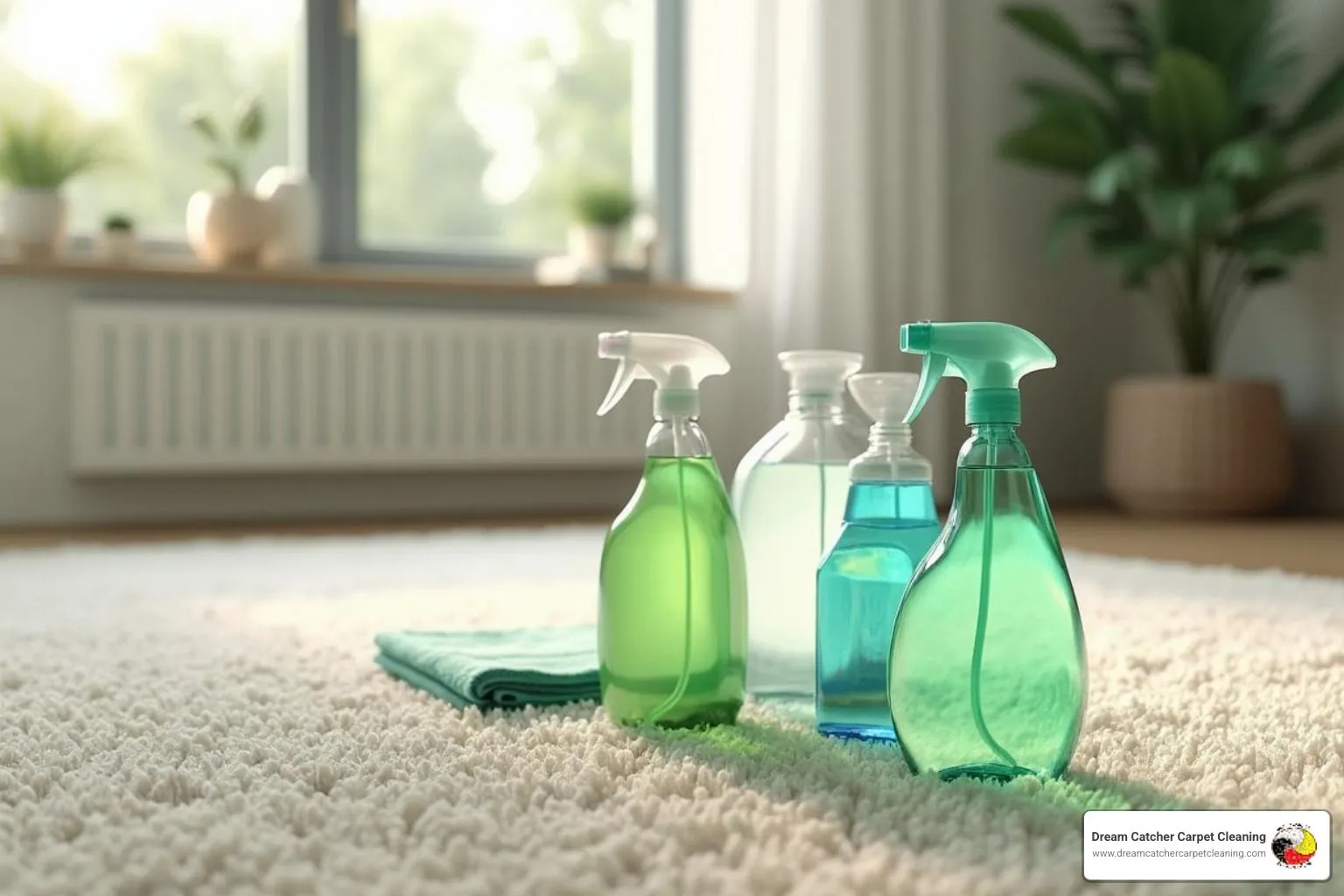
In an age when more of us are paying attention to the ingredients in the products we use, cleaning supplies are no exception. If you’re looking to clean your home without breathing in harsh fumes or coating your surfaces with synthetic chemicals, homemade cleaners may be the solution you’ve been searching for.
Using simple, everyday ingredients like orange peels, white vinegar, lemon juice, and baking soda, you can create powerful cleaners that are gentle on your health, your wallet, and the planet.
Why Ditch Commercial Cleaning Products?
Many household cleaning products contain volatile organic compounds (VOCs), artificial fragrances, and harsh surfactants that may contribute to:
- Respiratory irritation
- Skin allergies or sensitivities
- Hormonal disruptions
- Indoor air pollution
In fact, studies have shown that indoor air can be 2 to 5 times more polluted than outdoor air—largely due to everyday household products.
By switching to homemade cleaners or using EPA Safer Choice-certified products, you can drastically reduce your exposure to these harmful substances while still keeping your home spotless.
Benefits of Making Your Own Cleaner
Here’s why more people are embracing DIY cleaning products:
1. Better for Your Health
Natural ingredients mean fewer toxins. You’re less likely to experience headaches, skin reactions, or respiratory issues often triggered by synthetic chemicals.
2. Budget-Friendly
Most homemade cleaners are made from staples you probably already have in your kitchen—like vinegar, lemons, and baking soda. No need to spend $5–$10 per bottle on brand-name “green” products.
3. Eco-Conscious
Fewer synthetic ingredients mean less pollution entering our waterways. Plus, reusing containers reduces waste and packaging.
4. Effective Cleaning Power
Homemade doesn’t mean weak. Natural acids, abrasives, and essential oils can break down grime, disinfect surfaces, and deodorize just as well as store-bought brands.

DIY Cleaner Recipes That Actually Work
Citrus-Infused All-Purpose Vinegar Spray
Use for: Countertops, windows, tiles, sinks, stainless steel, and even cutting boards.
Ingredients:
- Orange, lemon, or lime peels (a mix is great!)
- White distilled vinegar
- Water (for dilution)
- A mason jar + spray bottle
Instructions:
- Fill a mason jar with fresh citrus peels.
- Pour in vinegar until the peels are fully submerged.
- Seal and let sit for 1–2 weeks to allow the oils to infuse.
- Strain the liquid into a clean spray bottle.
- Dilute 1:1 with water for a gentler spray (especially on surfaces like stone).
Why it works: Vinegar is naturally antibacterial and cuts through grease. Citrus peels infuse the mixture with oils that not only enhance the cleaning power but also leave a fresh, natural scent.
Note: Avoid using vinegar-based cleaners on granite, marble, or other natural stone surfaces as the acidity can etch the stone.
Lemon & Baking Soda Scrubbing Paste
Use for: Kitchen sinks, stovetops, tubs, tile grout, and even soap scum.
Ingredients:
- 1/2 cup baking soda
- Juice of 1 lemon
- (Optional) A few drops of tea tree or lavender essential oil
Instructions:
- Sprinkle baking soda on the surface or mix it in a bowl.
- Squeeze lemon juice on top—watch it fizz!
- Use a sponge or cloth to scrub. Rinse with warm water.
Why it works: Baking soda acts as a mild abrasive, while lemon juice’s acidity cuts through grease, soap scum, and mineral buildup. The combo is especially great for tough spots without scratching surfaces.
Simple Glass & Mirror Cleaner
Use for: Windows, mirrors, glass surfaces.
Ingredients:
- 1/4 cup white vinegar
- 1/4 cup rubbing alcohol (70%)
- 1 tablespoon cornstarch (helps prevent streaking)
- 2 cups water
- A few drops of essential oil (optional)
Instructions:
- Combine all ingredients in a spray bottle and shake well.
- Spray directly on glass or mirrors and wipe with a lint-free cloth or newspaper.
Why it works: The alcohol speeds up evaporation, while vinegar cuts grease and cornstarch reduces streaks—making your glass shine like new.
What About Disinfection?
While vinegar and lemon are naturally antibacterial, they don’t fully disinfect like bleach or commercial disinfectants. If you’re cleaning surfaces after raw meat prep or during cold/flu season, consider using hydrogen peroxide (3%) as a natural disinfectant. Simply spray on surfaces and let sit for at least 1 minute before wiping.
💡 Bonus tip: Never mix vinegar with hydrogen peroxide or bleach—it can create harmful fumes.
Not Ready to DIY? Look for the EPA Safer Choice Label
If making your own cleaner isn’t your thing, that’s totally okay. Just be selective with store-bought options. Look for products certified by the EPA Safer Choice program. These cleaners have been vetted for human and environmental safety, without compromising performance.
A Small Change That Makes a Big Impact
Making your own cleaner might seem like a small step, but when multiplied across households, it can lead to:
- Less chemical runoff into waterways
- Reduced plastic waste from packaging
- Better indoor air quality
- Fewer allergens in your home
Plus, it’s empowering to know exactly what’s in the products you use every day
Ready to Start Your Green Cleaning Journey?
Here’s a quick starter checklist:
- Save your citrus peel
- Stock up on white vinegar and baking soda
- Reuse old spray bottles or jars
- Test recipes on small surfaces
- Label your DIY products clearly
Homemade cleaners can be just as effective as store-bought ones—with far fewer risks and a much lower environmental impact. Try a recipe or two and see for yourself how easy (and satisfying!) It is to clean the natural way.
